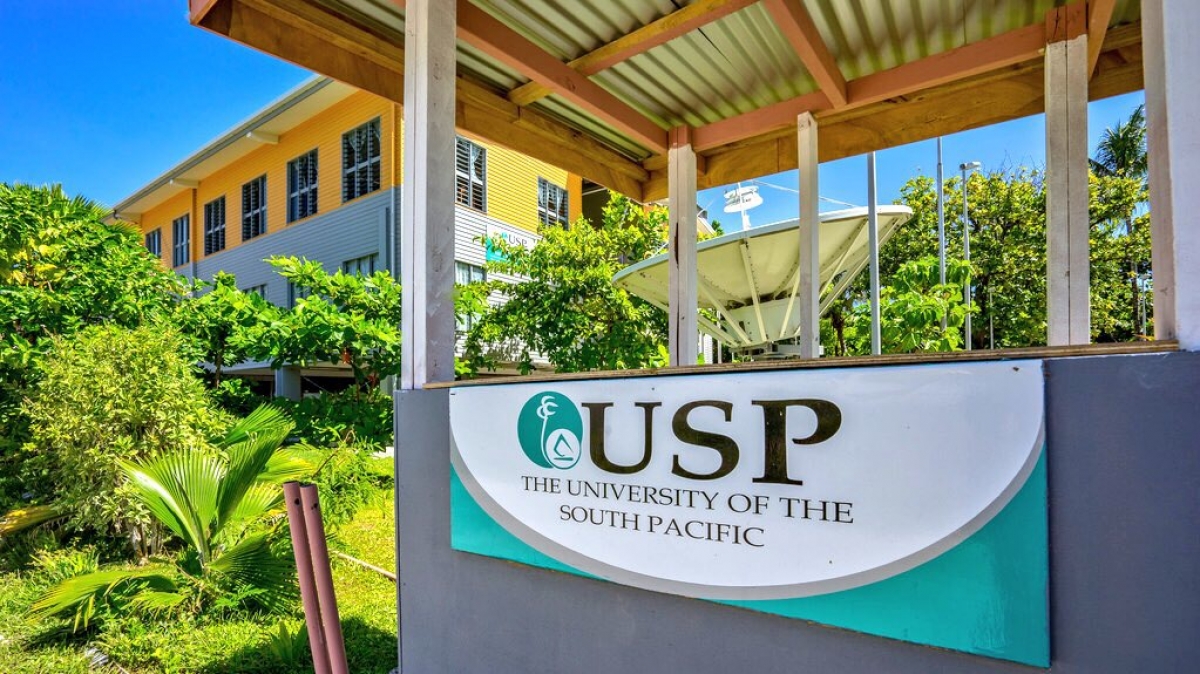The University of the South Pacific (USP) has made an outstanding contribution in a new publication titled, “A new way forward for ocean-climate policy as reflected in the UNFCCC Ocean and Climate Change Dialogue submissions” in time for the 26th United Nations Climate Change Conference of the Parties (COP26).

A team of highly acclaimed scientists, including USP’s Director of the Pacific Center for Environment and Sustainable Development (PaCE-SD) & Professor of Ocean and Climate Change, Professor Elisabeth Holland, have published the paper on the UNFCCC Ocean-Climate Dialogue in Climate Policy, a highly ranked international journal publishing high-quality research into climate-change policy, including adaptation, negotiations and impact.
Six other researchers and ocean advocates, including Bobbi Jo-Dobush, Natalaya D.Galo, Melania Guerra, Bleuenn Guilloux, Sarah Seabrook and Professor Lisa A Levin co-authored the paper inspired by a pivotal moment in informal ocean-climate policy: the coming together of three previously siloed policy agendas – those of international ocean, climate, and biodiversity management.
The paper highlighted that the ocean, covering 70% of the planet, underpins the Earth’s climate system and is a critical element in the Earth’s response to rising greenhouse gas (GHG) levels in the Anthropocene. Despite that it moderates global warming by absorbing ∼93% of the excess heat and ∼26% of the excess CO2 from the atmosphere, ocean ecosystems suffer the consequences of this buffering capacity with ocean acidification, ocean deoxygenation and many other complex changes in ocean dynamics (Bindoff et al., 2019).
The paper further discussed the importance of Ocean Dialogue and submissions and its necessity to implement strong stewardship and good governance of the blue planet in a disrupted climate.
Many submissions requested that the Ocean Dialogue be the first step in a long-term process to integrate climate, ocean, and biodiversity, as expressed in most Ocean Dialogue submissions.
To further the ambition of the Ocean-Climate Dialogue, decision-makers must consolidate stronger collaborative partnerships with scientists to jointly create strategies aiming to solve global challenges, such as those at the heart of ocean-climate-biodiversity issues.
In this context, the authors proposed that the emerging field of science diplomacy provides a framework of practices and theoretical concepts that can help build the necessary infrastructure for scientific advice to reach and influence policy-making, both at domestic and international scales.
Among those elements are establishing networks of researchers, access to cooperation funding mechanisms, the linkage with the scientific diaspora, and communication training to enable practical interfacing between the science and foreign policy communities.
We join the chorus of supportive voices calling for formal acknowledgement and continuation of the Ocean Dialogue as a next action step in a transdisciplinary, international dialogue on the ocean and climate change, creating a space where Parties and non-Party stakeholders co-design and co-implement solutions and share knowledge and experience around these solutions to elevate the ocean-climate-biodiversity nexus via science, finance, policy, and innovative collaboration.
The imperative for these scientific, political, and diplomatic efforts becomes more urgent as climate change ensues.
A new way forward for ocean-climate policy as reflected in the UNFCCC Ocean and Climate Change Dialogue submissions
The conclusions fully support the continuing leadership of our Pacific leaders and diplomats in furthering the Ocean-Climate Nexus in the UNFCCC negotiations and in the Boundaries Beyond National Jurisdiction so important to the future of the Pacific. The ongoing CROP collaborations to support the Pacific are essential to the success of Pacific diplomatic ambitions for COP26 and beyond.
You can access the latest publication here: https://www.tandfonline.com/doi/full/10.1080/14693062.2021.1990004

